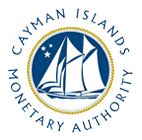List of Brokers with CIMA Regulation
The Cayman Islands Monetary Authority (CIMA) began operations on January 1, 1997, to regulate and oversee the Cayman Islands' financial services industry. CIMA is also responsible for enhancing Cayman's ability to maintain a well-regulated financial services regime and monetary stability. CIMA is given the functions, duties, powers, and obligations to ensure the accountability and transparency of the Cayman Islands while protecting and enhancing the integrity of the financial services industry in the area.

| Established | : | 1997 |
| Country | : | Cayman Islands |
| Website | : | https://www.cima.ky |
| Total Brokers | : | 10 |
Scroll for more details
FAQ
What does CIMA regulated mean?
Being regulated by CIMA (the Cayman Islands Monetary Authority) means operating under the standards of a Cayman Islands financial regulator. Established in 1997, the institution bears the responsibilities derived from the Cayman Islands Monetary Authority Law. Its regulatory framework helps ensuring the ethical code of conduct from financial companies in the country. Their subjects include banks (onshore and offshore), portfolio managers, hedge funds, fund management entities, and credit unions.
CIMA regulated forex brokers are generally operating under easier policies compared to other brokers regulated in top financial watchdogs. The Cayman Islands Monetary Authority is known for a liberal framework to give more flexibility to financial companies set up in the country. Nonetheless, CIMA is obliged to the international community for creating specific rules and regulations to at least prevent money laundering and financial crimes. Other requirements set up by CIMA are:
- Annual audits on company accounts.
- Submission of annual accounts and certificate of compliance.
- Notification to CIMA if there are changes made by the company.
- Independent audit on the internal controls of licence holders.
- Provision of current insurance details.
- Submission of monthly statements by licensed dealers/brokers.
- Adjustion of balance sheet figures on an annual basis.
What is the main purpose of CIMA?
What is the main purpose of CIMA?
- To regulate and supervise all financial services in the Cayman Islands.
- To ensure that regulated businesses are compliant with money laundering regulations. -To provide regulated entities with a guideline containing policies and procedures, as well as statements of principles.
- To act as an advisor for the Cayman Islands government in relation with monetary and regulatory matters.
- To manage currency reserves, issue, and redeem the Cayman Islands currency.
- To contribute in helping overseas regulatory agencies to promote the supervision of financial markets.
To ensure the safe operation of the Cayman Islands economy and protect investors from financial malpractices, CIMA has the authority to implement several guidelines in place. Involvement in any financial crimes by a member firm won't be taken lightly even though CIMA's preference to keep their policies flexible may deter them from applying strict rules to a suspected instituion. Nevertheless, CIMA ensures constant surveillance and regularly promotes sound financial system to improve confidence and trust among investors.
If you are interested to open an account in one of the brokers in the list above, make sure to try the forex demo account before proceeding to register in the live account.
Additional FAQ
What are some of the best offshore trading regulations?
Here are some of the best offshore trading regulations which attract forex traders worldwide:
- Tax Benefits: By offshore forex trading, a trader can be exempt from paying taxes in their country of residence.
- High Leverage: Offshore brokers are not being strictly controlled by their financial authorities. Due to this, they're able to offer riskier leverages up to even 1000:1 in order to attract more clients to invest with them.
- Assets Availability: Most countries have banned quite a few financial assets like cryptocurrency due to how volatile it is. Offshore forex trading is therefore extremely popular as traders don't have to worry about some assets not being available to them for trading.
Continue Reading at Your Simple Guide to Offshore Trading
How did Russian forex regulation become very strict?
The first official effort to regulate the industry began in 2004 through the establishment of Federal Financial Markets Service (FFMS/FSFR). After the agency's disbandment in 2013, the Central Bank of Russia took over supervising Russian forex brokers.
In 2015, the Central Bank of Russia launched far stricter law enforcement. Forex brokers were given a January 2016 deadline to obtain licenses from CBR, or abstain from carrying out their services in the region. Since then, CBR only granted licenses to a handful of brokers.
Continue Reading at Best Forex Brokers in Russia
Who regulates forex trading in Singapore, and what are the key features?
The Monetary Authority of Singapore (MAS) is the regulatory authority overseeing forex trading in Singapore. Singapore's regulatory framework allows leverage up to 1:500 and covers a wide range of forex pairs and cryptocurrencies.
Continue Reading at Forex Trading in Singapore: 5 Facts You Need to Know
How to check a broker's regulation?
Here are the steps on how to check if a forex broker is regulated:
- Check the broker's website.
- Visit the regulatory agency's website.
- Contact the regulatory agency.
Continue Reading at How to Avoid Forex Broker Scams
Broker Categories
Minimun Deposit
Payment
Country
Established
Instruments Traded
Features
Trading Platform











